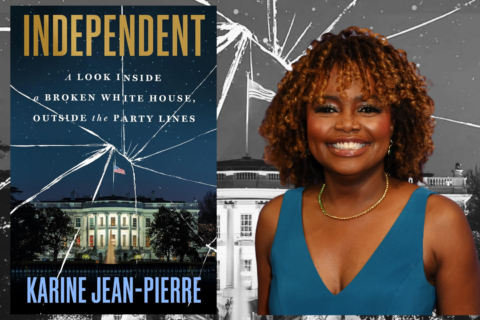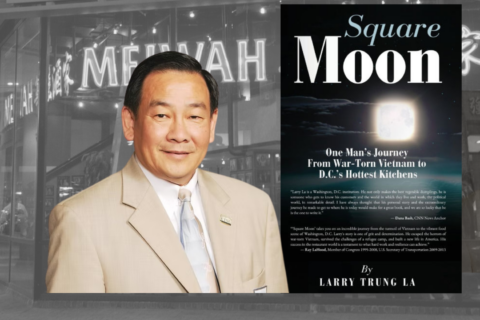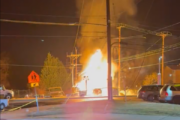This story is part of the WTOP Book Report series written by Terik King. Read more of that coverage.

With political experts warning of potential disruptions in the Electoral College due to ballot-counting changes in Georgia and rule-change attempts in Nebraska, would chaos truly be, as pundits frequently say, “unprecedented?”
CNN Chief Political Correspondent Dana Bash says “no.”
Bash recently joined the WTOP Book Report to discuss her first book, America’s Deadliest Election: The Cautionary Tale of the Most Violent Election in American History. Co-authored with David Fisher, the book examines the 1872 Louisiana gubernatorial election, a chaotic and violent contest that Bash argues continues to reverberate through American politics today.
“This was something that I was shocked and embarrassed that I didn’t know about,” Bash told WTOP. “It begins with the chaotic and horrible election in Louisiana in 1872, but the repercussions are national and are lasting up until where we are today.”
Bash, who anchors Inside Politics and co-anchors State of the Union with Jake Tapper, said she was drawn to the story after learning about it from Fisher and Dan Abrams, with whom Fisher had previously collaborated on other historical works.
The 1872 election, set during the Reconstruction era, involved widespread violence and fraud aimed at disenfranchising newly freed Black voters. According to Bash, the stakes and tactics of that election provide important lessons for today’s political climate.
This video is no longer available.
Louisiana paves the way for Jim Crow
America’s Deadliest Election is divided into two parts. The first focuses on Louisiana’s gubernatorial race, one punctuated by violence, including the Colfax Massacre — where more than 150 Black men were killed in cold blood — and was part of a broader effort by white supremacists to suppress Black political participation.
“It was the first time really in American history that racist segregationists understood the power of the right to vote, “said Bash, “and the need, if they want to keep their white supremacist views in place as policy in their society, to do what they can to intimidate Black voters. And (that idea) has been a tool of those groups and those people who have those discriminatory views ever since.”
After the violent clashes in 1872, empowered by civil rights guarantees in post-Civil War constitutional amendments, the prosecutions of the anti-Black segregationists made it to the U.S. Supreme Court, which ultimately decided to allow the states to devise and impose voter rights protections.
“The Southern states, including and especially Louisiana, said ‘Great, we agree.’ And they introduced Jim Crow laws,” said Bash, “which affected every aspect of the Black citizen’s life — not just voting.” The Jim Crow laws — which ultimately lasted the better part of the next century — “can all be traced back to this horrific election in 1872 in the state of Louisiana,” Bash added.
An 1870s analog to Donald Trump
In America’s Deadliest Election, Bash highlights the role of Henry Warmoth, the controversial carpetbagger governor at the center of the 1872 election, comparing his charismatic domination and naked pursuit of power to the current Republican nominee. “He could sell ice to Eskimos,” Bash said. “He is someone people loved to love, and loved to hate,” she said.
Warmoth, an ally of newly-freed Black voters when he ran for governor in 1868, switched allegiances when it suited his political ambition because segregationists were ascendant in 1872.
“He was almost a cultlike figure, and people who liked him didn’t really seem to care that what he was arguing for four years hence was very different from what he was arguing for earlier,” Bash said.
“History Doesn’t Repeat Itself, but It Often Rhymes” – Mark Twain
The second part of the book examines how the chaos in Louisiana affected the 1876 presidential election, which resulted in a national political crisis. Congress refused to certify the results from several states, including Louisiana, due to fraud. This lead to months of uncertainty — an unsettling parallel to the controversy surrounding the 2020 election and the events of Jan. 6, 2021.
“Nobody would concede the election,” said Bash, “(so) they got two slates of electors and there was a discussion about whether the vice president had the power to decide whether (counting the votes) was just a ceremonial role. Sound familiar?”
The result was an arguably undemocratic resolution. Once the fraudulent electoral votes were thrown out, there was a tie in the Electoral College. “They came up with this commission to decide the president, (and it) basically came down to one person deciding that Rutherford B. Hayes should be president of the United States.”
Asked whether knowledge of these historical echoes might have informed her reporting on the aftermath of the 2020 election of the past in modern elections, Bash did not hesitate.
“Absolutely,” she said. “I definitely would have been much more understanding and maybe even prepared for the kind of thing that we saw in 2021. It’s the adage: if you don’t learn from history, you’re very likely to repeat it. And there was a lot of repeating, or rhyming, that went on.”
Bash hopes America’s Deadliest Election will shed light on a lesser-known chapter of American history and encourage readers to reflect on how its lessons apply today.
“Imagine if Reconstruction had worked,” Bash mused. “If we didn’t have to contend with the horrible racism that was allowed to fester for 100 years in this country. What kind of world would we be living in right now?”
Get breaking news and daily headlines delivered to your email inbox by signing up here.
© 2024 WTOP. All Rights Reserved. This website is not intended for users located within the European Economic Area.









